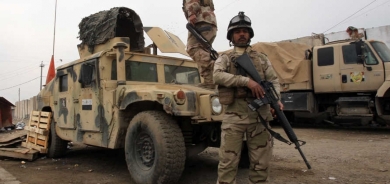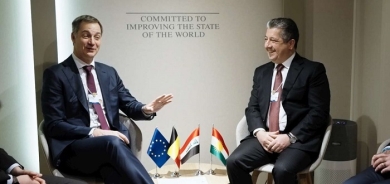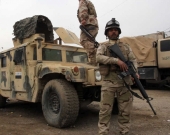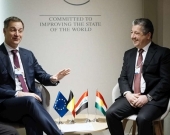Kurdish Victim of Norwegian Massacre Remembered

COPENHAGEN, Denmark — The father of a Kurdish teenager gunned down by a right-wing extremist in Norway three years ago says she was a progressive young leader who advocated for tolerance and had political ambitions.
Bano Rashid, 18, was killed along with 68 others — including 33 under the age of 18 — by right-wing extremist Anders Breivik at a Workers’ Youth League camp on the Norwegian island of Utøya on July 22, 2011. It was the worst violence the country had seen since World War II.
As the third anniversary of the massacre nears, Abobakar Rashid told Rudaw that the family remains devastated by the loss.
“Her absence affects us so much. We live in a severe condition. She wanted to become a lawyer and then start a political career as a member of the parliament, but she's not with us anymore,” Abobakar said.
The Rashid family fled Erbil to Norway in the late 1990s during the civil war between the Kurdistan Democratic Party (KDP) and Patriotic Union of Kurdistan (PUK).
Bano, who grew up in Norway, was leader of the local branch of Workers’ Youth League in Nesodden, a small city in southeastern Norway. A well-known youth activist against racism and right-wing extremism, she was planning to run for a seat on Nesodden’s city council in the fall.
“Bano did not differentiate between ethnicities. She hoped all problems would be solved by dialogue,” Abobakar said.
In Norway, Bano was safe; there was no war, no bombs. That reality was shattered on July 22, 2011, when Bano was killed. She was believed to have been shot while swimming to escape Breivik’s massacre on Utøya island, which he carried out after setting off a car bomb near government buildings in Oslo that killed eight people.
Convicted in 2012 and sentenced to 21 years in prison, 32-year-old right Breivik told the court in Oslo his goal was to “save” Norway and western Europe from “a cultural Marxism and Muslim takeover.”
Breivik had a firearms license and purchased fertilizer in large quantities that was used to make the car bomb through his private company. During the massacre he used so-called dum dum bullets that inflict maximum damage on the victims.
Abobakar’s second daughter, Lara, was also on the island during the killing but survived. Now Lara is active in the Workers’ Youth League.
After Bano’s death, her family created an organization to bridge cultural, religious and language gaps between young people.
They organization has sent Christian and Muslim religious leaders to Iraqi Kurdistan and Christian and Yezidi areas to encourage dialogue between different ethnicities and religions.
“It was very good for them, so they could see new cultures and make contacts,” Abobakar said.
Bano’s funeral — she was the first victim to be buried — was a mixed Christian-Muslim burial and memorial that included a female minister and imam. Alexander Rybak, a famous singer, sung in her honor and Foreign Minister Jonas Gahr Støre spoke at the memorial.
Bano’s coffin was wrapped in the Kurdish flag. Bano's mother told the Norwegian media that she would handle the difficult time with forgiveness.
“The answer is not hate, but more love,” Bano’s mother Beyan told the Norwegian newspaper Aftenposten.
In addition to encouraging dialogue, each year the organization invites football players from Iraqi Kurdistan to Norway to play friendly matches.
Before her death, Bano lobbied the Workers’ Youth League to recognize Kurdistan. She had also planned to boost ties between the league and young Kurdish politicians.
Three years after the massacre, Iraqi Kurdistan appears to be moving toward officially declaring independence.
“If she were alive today, she would be happy to see Kurdistan's development towards independence. Through her work Bano became a symbol for other young Kurds who were active in politics,” Abobakar said.
Abobakar now hopes to go to Kurdistan to support other grieving parents.
“Many parents in Kurdistan lose their children in a young age,” he said. “I hope I can help them because our hearts are aching, just like theirs.”
Despite Bano's death, the family continues the fight for their ideals.
“If we could, we would destroy racism and we would foster cooperation between the world's peoples, beliefs, races and languages. In this way we would complete Bano’s goals,” Abobakar said.
Although Breivik wanted to destroy multiculturalism in Norway, the country’s political establishment pledged to honor the victims.
"We have lost enthusiastic, positive and active young people. They represented the values that Breivik tried to fight and we will honor their memory by continuing to fight for the same values," Nina Sandberg, a Labor Party politician, told the Norwegian website Dagbladet.no.
Rudaw














